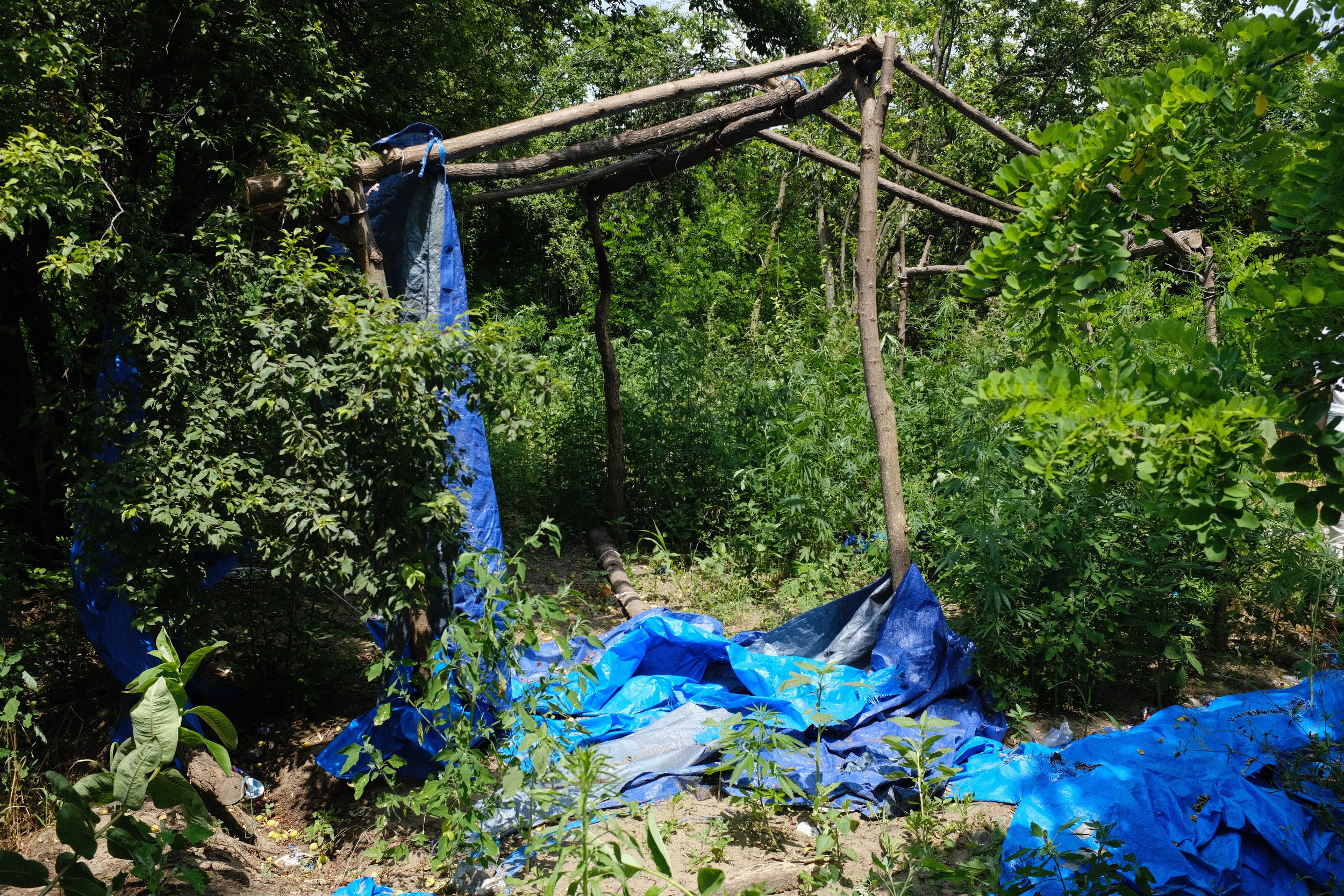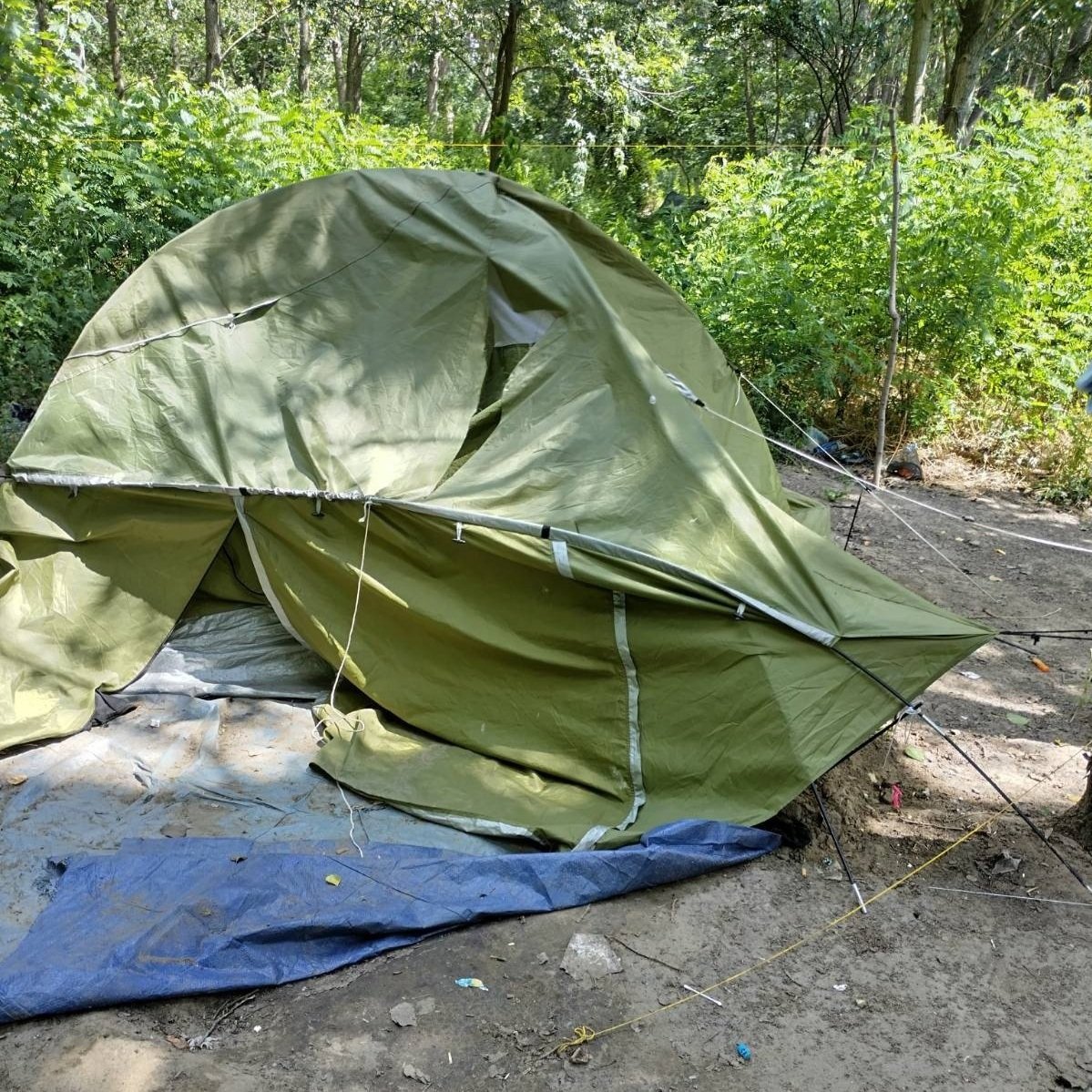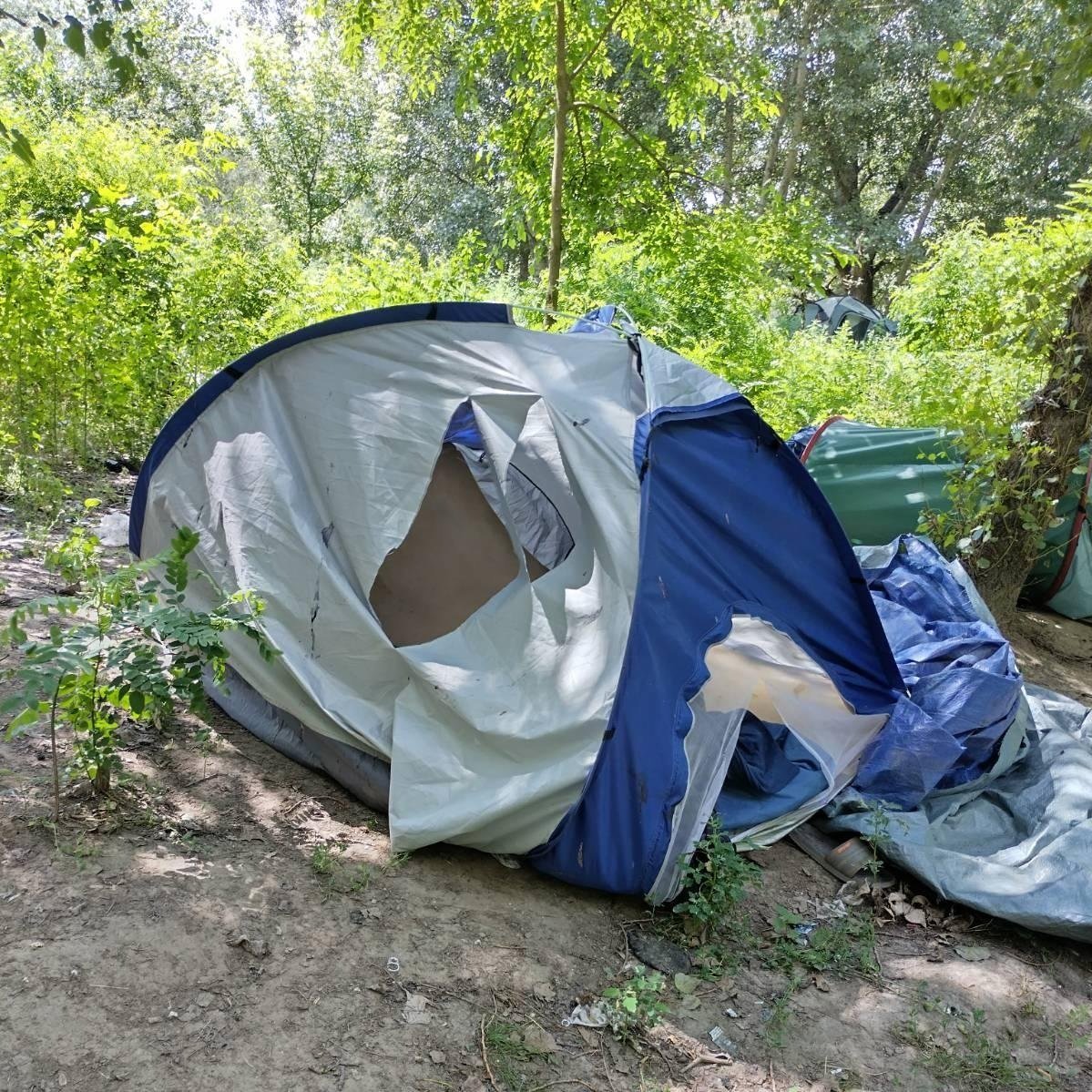Serbia’s Escalating Campaign of Evictions
On the morning of the 17th of June, videos emerged online documenting gunshots coming from the forests surrounding the town of Palic in northern Serbia. The forests of Palic are where many displaced people are forced to stay in temporary living sites and informal camps away from Serbian infrastructure.
The gunshots were not caused by displaced people but were the result of tensions between smuggling gangs active in the area, and the videos soon gained traction online and stirred residents of the local community.
In response to the shootings and the concerns of the local residents, Bojan Šoralov, Head of the North Bački administrative district covering a significant portion of the northern Serbian border, including Palic and the city of Subotica, where Collective Aid work, made a statement.
“The police will secure all border settlements located near the Hungarian border... Every day we will carry out actions and relocate migrants.”
Šoralov stated his intent to ‘intensify control of irregular migrants’. This marked the beginning of a violent campaign of near-daily evictions - police operations to remove people from squats and informal settlements.
Whilst it is understandable the Serbian authorities want to protect local populations from gunfights, Collective Aid believes that systematic violence towards people on the move is misguided and wrong. Instead, their attention should be targeted at organised crime and internal corruption. People who have exploited a situation created by Europe's aggressive ‘border management’.
Unfortunately, smuggling gangs are the only realistic means for many people to make the dangerous journey into Europe. Lacking safe and legal routes, people are sadly forced to pay the expensive price of assistance from these actors.
Trapped as they are, the people on the move in northern Serbia have no choice but to exist between the violence of smuggling gangs and the brutality of Europe’s border. Border’s fortified by two six-metre-tall fences lined with razor wire which is sometimes electrified.
On 18 June, police announced to the media that on the previous day, they had taken 113 people from the forests. It was from then that Collective Aid began to see the result of Šoralov’s pledge, as a campaign of daily evictions began to unfold.
Collective Aid is witness to the fact that Šoralov’s campaign is resulting in consistent suffering for people on the move across northern Serbian. People who are simply trying to exercise their legal right to claim asylum in an EU state.
Bojan Šoralov, Head of the North Bački administrative district
In the months of April and May, Collective Aid saw 28 reported evictions in the region. They were frequently violent with severe police beatings leaving people bruised and bloody. These were accompanied by threats of gun violence, theft of money and valuables, destruction of living sites, and even the use of pepper spray.
Since 18 June however, the intensity of evictions has increased significantly, and it is now happening almost daily. On 25 June, there were 10 reported evictions across different living sites in one day alone, with some sites being visited more than once.
Across the month, Collective Aid recorded 10 times more evictions than January and a 100% increase from March. This is a rapid escalation of the steady increase in evictions that we have seen over the last six months. The use of violence and destruction or theft of items has remained consistent throughout.
Graph highlighting the known evictions our team have witnessed across northern Serbia and their trend of violence and destruction of belongings.
Our data on evictions paints only part of the picture. There are undoubtedly many more, likely violent evictions unaccounted for across the northern Serbian border.
Evictions of temporary living sites are nothing new to northern Serbia. Refugees and people on the move are often violently removed from their temporary living sites and taken to state reception camps all over Serbia. These camps are known to be frequently overcrowded and unsanitary. They are often far from where they were picked up, usually in the south, hundreds of miles from the place they had been staying. Such practices put people at further risk of being pushed back into North Macedonia or Bulgaria.
It is a process that is both physically and psychologically draining for the victims. But ultimately, it is futile because, within weeks, the individuals tend to be back at the northern Serbian border attempting to cross into the EU again. This cycle of violent evictions and relocations leaves people on the move essentially stuck in Serbia. Despite narratives in the media and from Serbian authorities, this ‘issue’ is likely financially beneficial for Serbia. As maintaining a high number of people moving through Serbia into Europe justifies the significant funding Serbia receives from Europe for ‘border management’. Namely through the EU pre-accession assistance (IPA) fund.
The violent and destructive actions of the Serbian authorities when evicting and relocating people are not only abhorrent but illegal. Collective Aid joins local and international actors KlikActiv and Medecins Sans Frontieres in condemning and calling for greater scrutiny from the EU on violent activities on its borders.
The images above depict personal shelters being destroyed after an eviction at two different living sites this summer.
Words by Dan Schoolar, July 2023.





